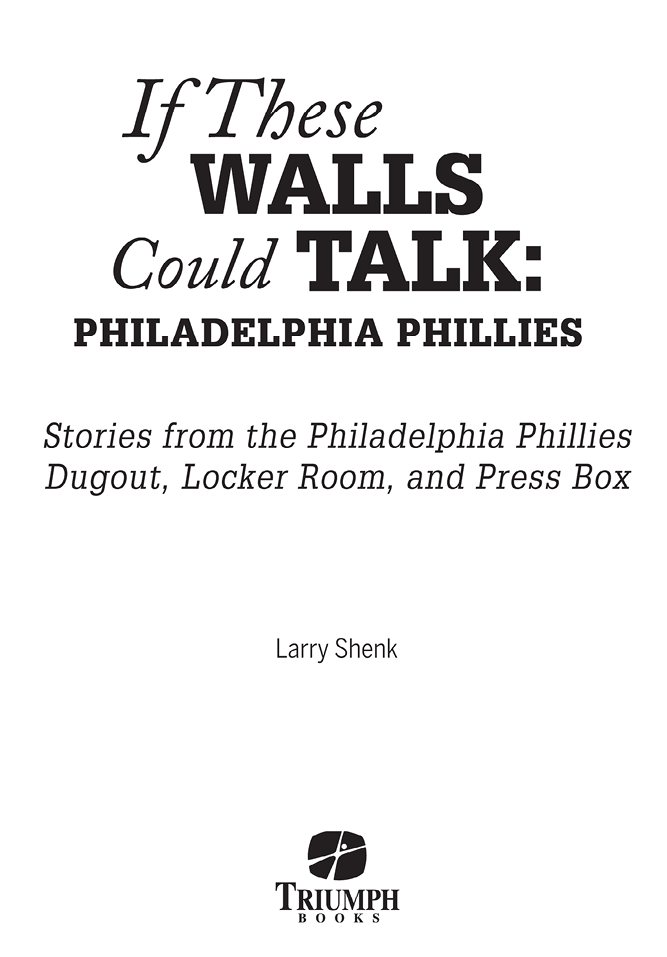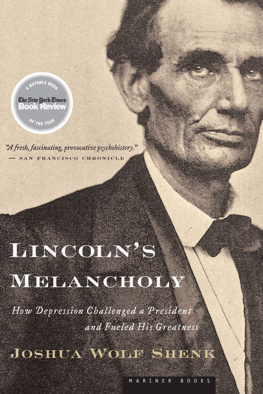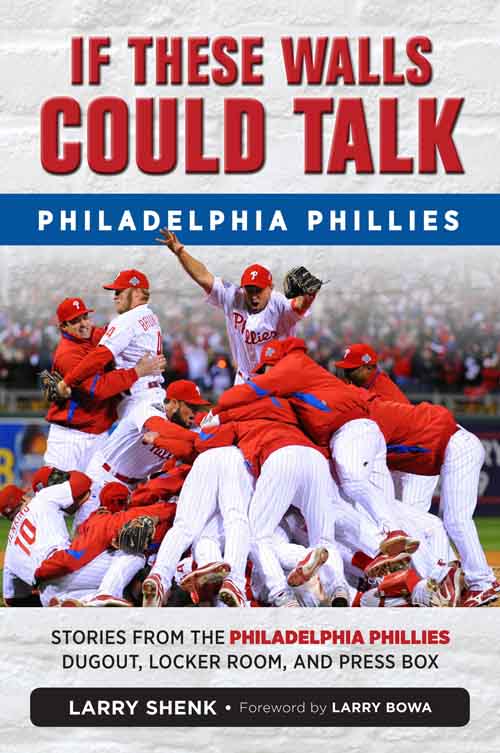
This book is dedicated to the following who mean so much to me
To Maebelle and Lester Shenk, my parents, and my sisters, Corinne Krall and Rochelle Ebling. Know Mom is looking down on all of us.
To my wife, Julie, for always being there for me. You are everything: wife, mother, grandmother. Im eternally grateful and I love you.
To our children, Debi Mosel and Andy. God truly blessed us with awesome children. Were so proud of you.
Because of baseballs long hours, Julie, Debi, and Andy sacrificed a lot while I lived my dream. Im forever indebted for their understanding, support, and love. This book wouldnt have been possible without their encouragement.
To Michael Mosel and Renee Acres Shenk, two wonderful additions to our family.
To two precious grandchildren, Audrey and Tyler Shenk, yet another blessing. With their arrival, Julie and I happily became Mimi and Baba.
Baseball is a great game. Important, yes, but shallow when compared to families filled with love.
Contents
Foreword by Larry Bowa
Philadelphia is a tough town.
After 25 years in a Phillies uniform12 as a player, nine-plus as a coach, and four as the managerI feel I can say that. The fans are tough, the media is tough, and because of that, the players have to be tough. So can you imagine being the person who has to bring them all together? For 44 yearsincluding all 25 of mineLarry Shenk was that man for the Phillies. Whether it was waiting up well past midnight for Paul Owens to complete a trade or calming down Dallas Green after a big loss or reminding the media that Steve Carlton wouldnt be speaking to reporters, Larry was in the middle of everything. And he was someone we, as players, all relied on and trusted. Trust is a hard thing to come by in baseball, but the Baron had ours.
When Larry would ask us to do interviews, it was hard for guys to say no, mainly out of respect. Hed been with the Phillies so long and had a very low-key demeanor, which made it difficult for people to say no to him. Thats not to say that we always said yesbecause we didntbut even through the most aggravating circumstances, I cant recall seeing Larry get mad at a player. I have to imagine I would have, if I had been in his shoes.
Larry was unique in that he would understand both the players point of view and the medias. He knew how hard a 162-game schedule was (not to mention over a month of spring training and possible playoffs) and the toll it took on players both mentally and physically. He also knew that the media was there to do a job, and that white space had to be filled somehow, so players needed to talk. It is a very delicate balance, but it was one that Larry handled with class and dignity.
Timing was everything with Larry. He wanted Phillies players under his watch to be accountable for what happened on the field. That was a big thing with him. Every year in spring training, he would say to us, The training room should not be a hideout. And he was right.
Larry was very good at preparing playersespecially mefor not just what questions we might get asked, but also how to best answer them. He would tell me, Bo, if you have a bad game, you get in front of that microphone and say, I messed up. I should have made that play as opposed to That ball took a bad hop. He would often remind us that if we were up front with the media and admitted to mistakes, wed never have any problem with the tough crowd. And he was right.
As respected as Larry was in Philadelphia and around the baseball world, there is no doubt he did a better job than people think when you consider the players he had to deal with. When I think back to that 1980 teamwhen Larry was in his prime as a PR guywe had guys who, if they had a bad game, wouldnt talk. Whether it was Mike Schmidt, Greg Luzinski, or even me. Sometimes, a player just cant be convinced to do something he may know is right. It was Larrys job to then go out and deal with the media while we would wait for them to leave. He was a team player in that regard and he had our backs, even if he didnt agree with us.
Larrys longevity is amazing. When youre in baseball a long time, its hard not to have people talk about you in a negative way. I can honestly say in all my years in the gameand having now worked on both sides of the equation with ESPN, MLB Network, and Sirius/XM RadioI never heard anyone say a bad word about him. No one ever badmouthed him, and I guess that goes back to his professionalism and how he carried himself. With the exception of Lefty (Steve Carlton), I cant remember one player who consistently refused to do what Larry asked. He had a way about him. And with regard to those who worked under him, he would never put anyone in a situation where they felt uncomfortable. In other words he didnt ask others to get a player that he knew might be difficult. Hed do it himself.
Ive always told people that Philly is right there with New York and Boston as the toughest media cities. Theres no way I would ever have wanted to do Larrys job. Its like being a utility player. When you go into the game in the eighth inning for defense, its a no-win situation. You better catch everything because if you make an error, youre a bum. You can sit on the bench for eight innings and be ice cold, and everyone knows youre going in for defense. Its a no-win situation just like with the media. If a player speaks, its because hes supposed to. If he doesnt, then people think the PR person isnt doing his or her job well.
My final time with Larry was when I managed the Phillies for four years. The manager deals with the PR person more than anyone else in the organization. He respected the job I had to do as manager. He knew my time was limited and he worked around that. I always felt like Larry put himself in a players position, even though he didnt play. I think he weighed both sides of the coin in every situation.
In baseball, a lot of times you will hear the expression: Hes a players manager. Well, Larry Shenk was a players PR guy.
Larry Bowa
Introduction
A s a small-town kid growing up a couple of hours from the big city of Philadelphia, my dream was to work for the Phillies, however unlikely that would be. A journey of rejections was overcome, but in 1963, my dream came true.
Notes, quotes, and anecdotes from 50 years in the game filled a mental notebook, prompting a book, which you are about to read. Hey, you might even fall asleep reading this epic, but thats okay. Dont tell anyone, but I fell asleep a few times while writing this book.
Youll read about a journey that took many turns and a rookie season that ended with one of the games greatest collapses. Plans for a rare Philadelphia World Series came to a bitter end. Fans had to wait 16 more years for the Fall Classic, one that became the greatest moment in the franchises 97-year history.
The book is filled with stories from the field, clubhouse, and front office; spring training, championship seasons, and jewel events such as All-Star Games and World Series. Those who wore the red pinstripe uniforms offer their many memories down through the years. Theres a history of uniform numbers worn by the Phillies and stories behind those numbers.
Theres my first encounter with the great Howard Cosell and an unusual request from the famous broadcaster, a story that will make you chuckle. There are behind-the-scenes insights into Phillies general managers, managers, and players, including Hall of Famers Richie Ashburn, Robin Roberts, Mike Schmidt, Jim Bunning, and Steve Carlton. Learn the thought process behind the emotional closing ceremonies of Veterans Stadium and the opening of Citizens Bank Park.













